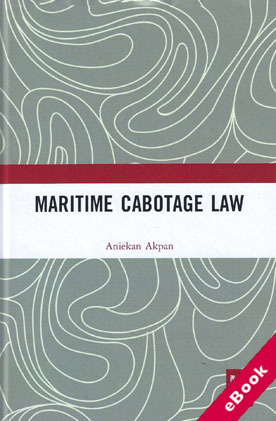We are now closed for the Christmas and New Year period, returning on Monday 5th January 2026. Orders placed during this time will be processed upon our return on 5th January.

The device(s) you use to access the eBook content must be authorized with an Adobe ID before you download the product otherwise it will fail to register correctly.
For further information see https://www.wildy.com/ebook-formats
Once the order is confirmed an automated e-mail will be sent to you to allow you to download the eBook.
All eBooks are supplied firm sale and cannot be returned. If you believe there is a fault with your eBook then contact us on ebooks@wildy.com and we will help in resolving the issue. This does not affect your statutory rights.
This is the most comprehensive review of maritime cabotage law. It introduces the new theory of Developmental Sovereignty to jurisprudence.
The maritime cabotage law provisions and approaches as adopted in many states and jurisdictions has been extensively scrutinised. This book challenges the established and accepted wisdom surrounding maritime cabotage by presenting new reasoning on the underpinning principles of the concept of maritime cabotage law.
The book offers a vibrant discussion on the adjustment in the regulatory approaches of maritime cabotage, from one that was intrinsically premised on the idea of national sovereignty, to one that now embraces the broader ideology of development. It investigates what the common understanding of the law of maritime cabotage should be and on what intellectual basis it can be justified.
It reduces the inconsistencies and confusion that surround the concept and application of maritime cabotage law, to provide a more certain and more robust concept of maritime cabotage.